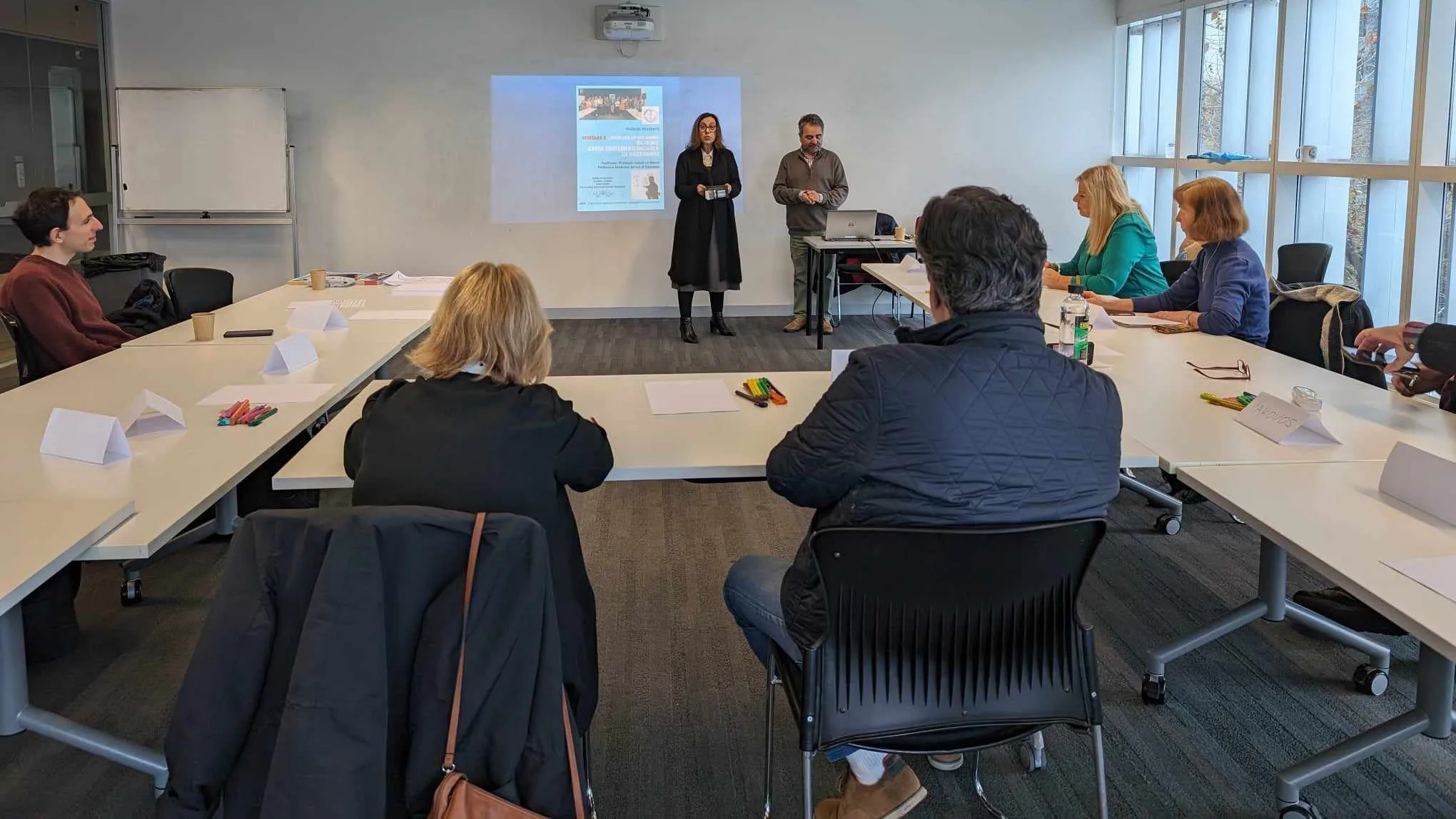A seminar aimed at helping parents raise bilingual children became the Pharos Alliance’s latest call to action for the preservation of Modern Greek in Victoria.
Professor Joseph Lo Bianco’s workshop, titled “Language in the Home: Raising Greek-English Bilinguals in Australia,” aimed to help parents raise bilingual children. Organised by the Pharos Alliance at the Greek Centre in Melbourne, the event saw a small turnout of just two parents and a handful of educators, highlighting the challenges faced in maintaining the language across generations.
The lament and the spark
Despite the low turnout, the event ignited a passionate discussion among the attending educators, frustrated by the decline of Modern Greek. Professor Lo Bianco acknowledged the difficulties yet emphasised the crucial work of the Modern Greek Teachers’ Association of Victoria (MGTAV) and the Pharos Alliance.
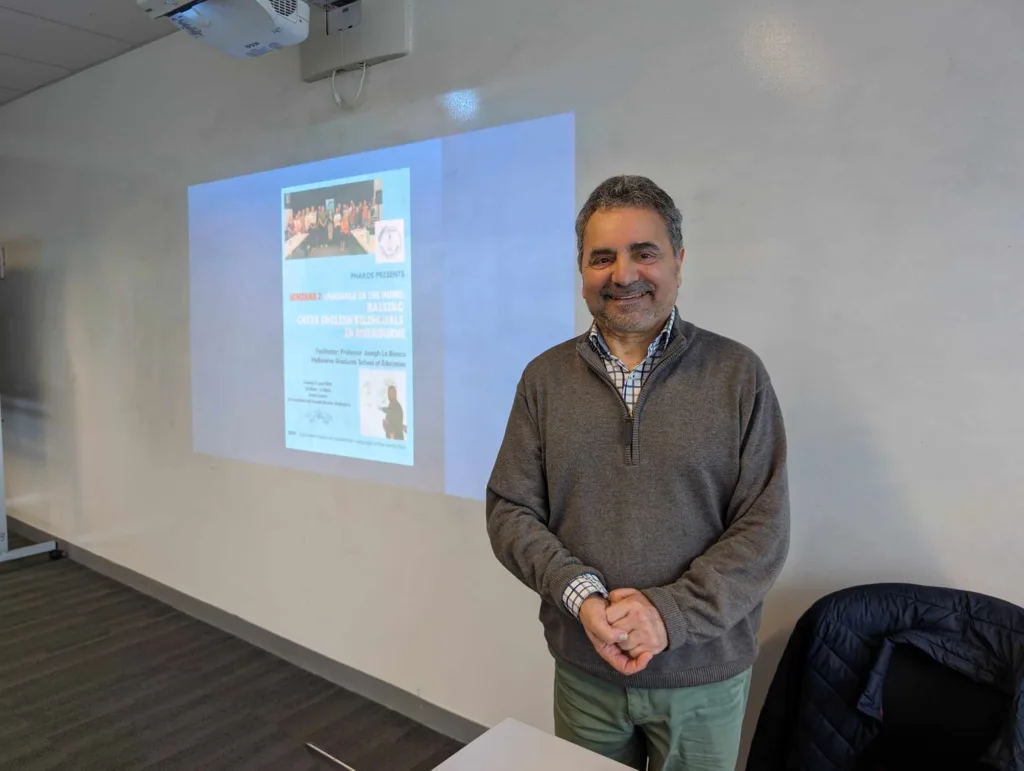
“The Greek community is facing the same issues of post-war migration communities,” Professor Lo Bianco said. “But because of Pharos’ work, only the Greek community has a comprehensive approach in tackling language loss. Reversing the trend will not be easy, because there are systemic problems. I interview many people, and unfortunately, some say things like ‘oh, it’s too late’ or ‘it is gone now’. That is a defeatist attitude. If people believe that you may as well pack up and go home because nothing can be done. If in your mind you’ve given up you can forget about it.”
Where governments have failed, it’s visionaries like Professor Lo Bianco working to save the language with the MGTAV, a professional organisation that supports teachers and promotes Greek language education throughout Victoria. Pharos, a community initiative formed in collaboration with the MGTAV, takes a broader approach. It aims to revitalise Modern Greek in Victoria by focusing on key areas such as capacity building to teach Greek, expanding opportunities to use Greek and fostering a stronger connection with Greek language and culture among young people.
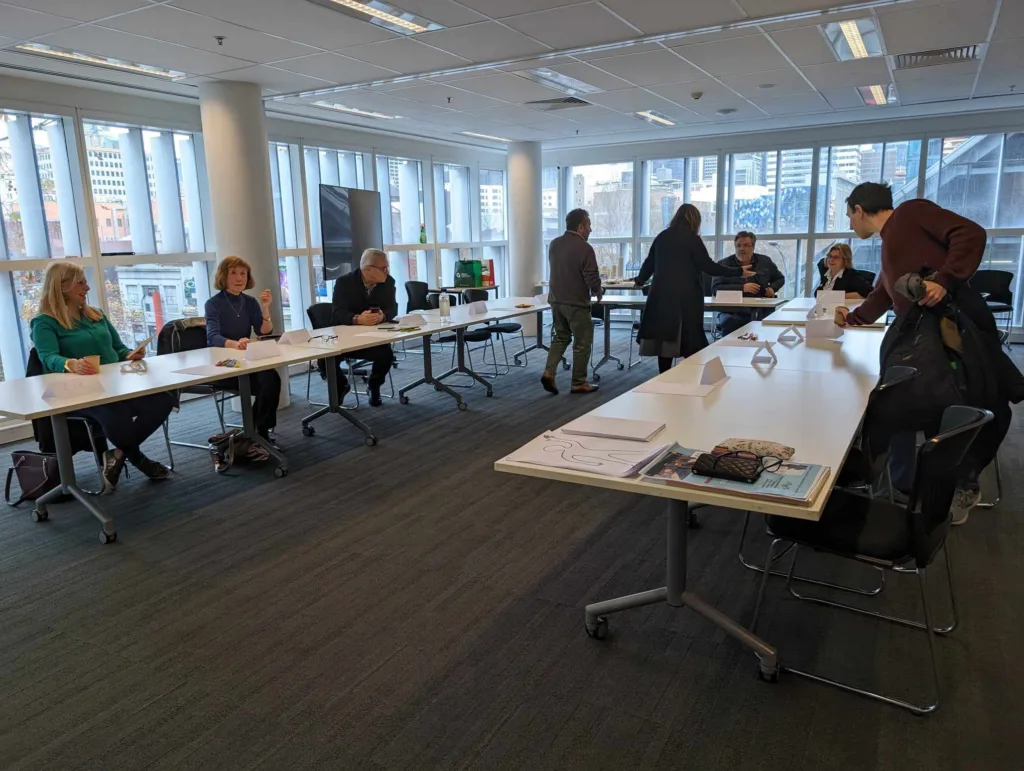
Reversing the tide: Strategies and Challenges
During the workshop, Professor Lo Bianco offered the two parents who attended practical strategies to create a bilingual home environment with Greek TV shows, games, and daily routines. Recognising the lack of parents present, the conversation shifted to educators’ efforts to immerse students in language.
Examples included an Oakleigh Grammar kindergarten teacher who created a Greek salad with students, and Alphington Grammar teacher and MGTAV Committee Member Denise Diakodimitriou’s annual immersive camp with VCE students, where Greek is spoken and bonds are forged to keep students motivated.
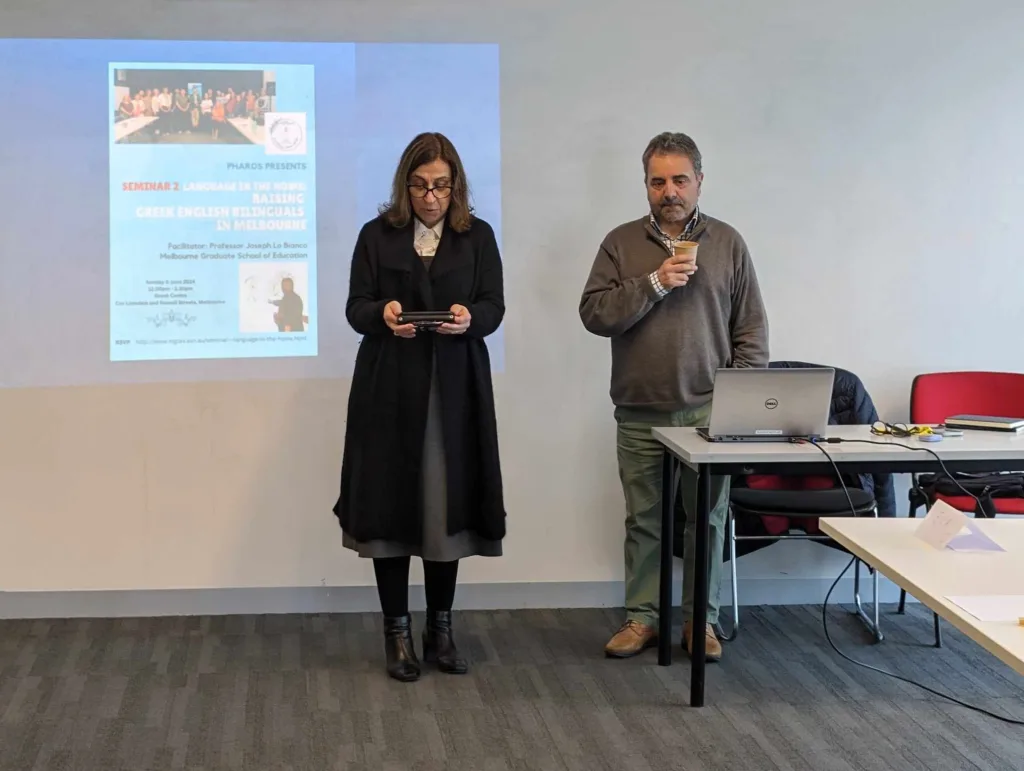
Professor Lo Bianco pointed to successful language immersion programs offered by other communities, such as the Latvian camps in Australia for 30 years. In Korea, the government took immersion a stop further by creating English immersion camps for students, who would be given a passport and enter an English-speaking world.
“There was some criticism in Korea that English was very elitist and only wealthy children were getting the benefits through travel. The government created a local experience,” he said. “We have been looking for it here, but don’t as yet have resources. We are hoping to get Greek businesses to subsidise Pharos to do this. We thought we could do three or four a year.”
Collaboration is key
The discussion emphasised the need for a united front. Iakovos Garivaldis, Director of Zenon Greek School, advocated for collaboration between schools, sharing resources, and creating partnerships. His school has been sharing its own interactive resources online for all to use for free.
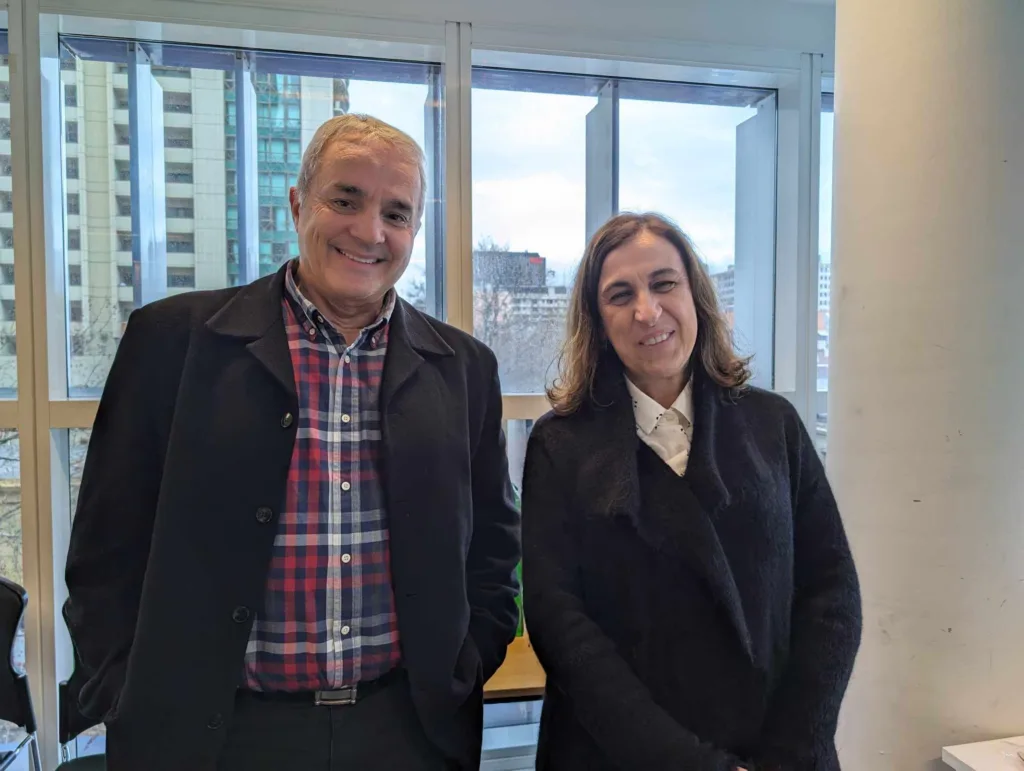
“We believe in the need to work together, to pool our resources, for schools to help each other offer the best possible education to students,” Iakovos told The Greek Herald. “That is why we are sharing our resources. But it can’t just be one school. We can’t just think of our own gain. We need to work together, exchange materials, create sister schools.”
Professor Lo Bianco echoed this sentiment, stressing the importance of community advocacy for better language policies. He outlined plans to work to preserve the Greek language with other states and territories but also to work with other community languages.
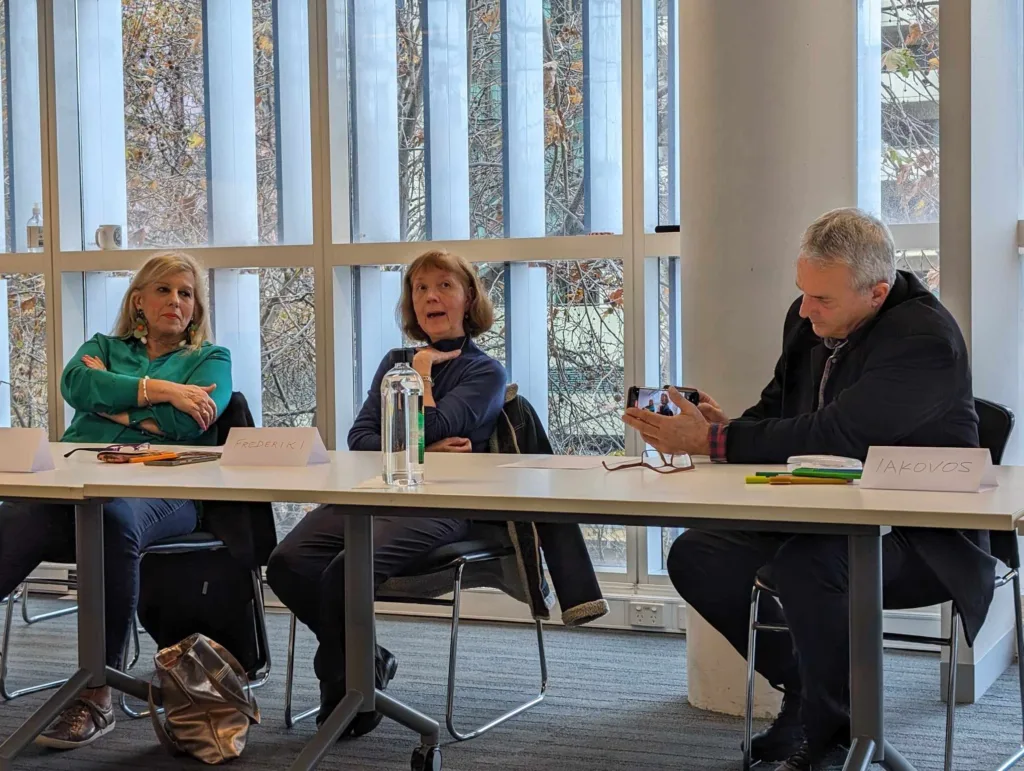
“Decline is across-the-board, and even Chinese language learning is in decline,” he said.
“I was part of a new national policy of languages presented in May last year, and they did nothing with it,” he said, adding that communities need to work together.
“There’s a lot of work in trying to push for a better policy but unfortunately we have a moment where governments have decided that languages are too hard and there is not enough push from the community.”
The downward trajectory will continue, Professor Lo Bianco predicts, unless Greek Australian community organisations work together with the MGTAV and Pharos, and community languages band together to preserve multiculturalism. Meanwhile, a polar opposite shift is happening to languages in Europe where European integration has caused a rise in language learning.
Professor Lo Bianco and a handful of teachers cannot save modern Greek, but they are working hard to find more advocates.
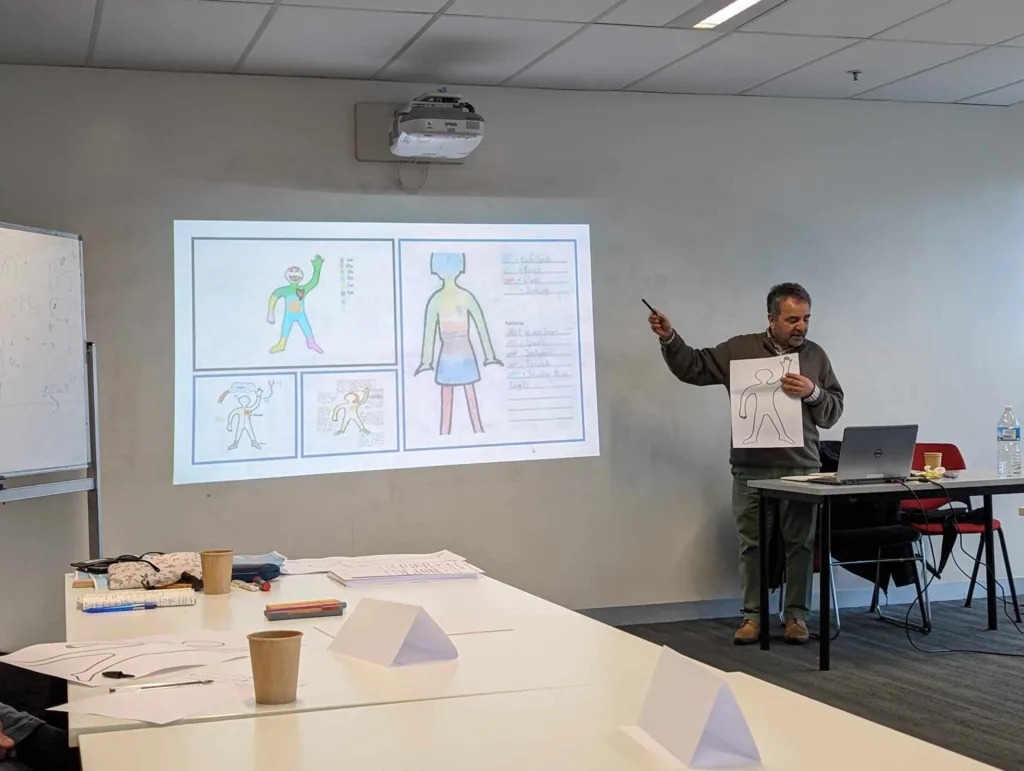
“Pharos is speaking, but nobody appears to be listening,” Eva Hehir, teacher of Northcote High School, lamented. As a teacher she has seen a steep decline in Modern Greek to the point that the language will soon be discontinued.
Macquarie University’s is shutting down its Modern Greek program, and other schools are seeing their language programs dwindle. But all is not doom and gloom when considering that the community was able to overturn a decision to shut down La Trobe University’s Greek language program by banding together. Professor Lo Bianco and the Pharos Alliance would like to see more of this and will do all in their power to ensure interest continues.
After all, the appearance of two parents is better than none.
READ MORE: Get ready to Wiggle while learning Greek
